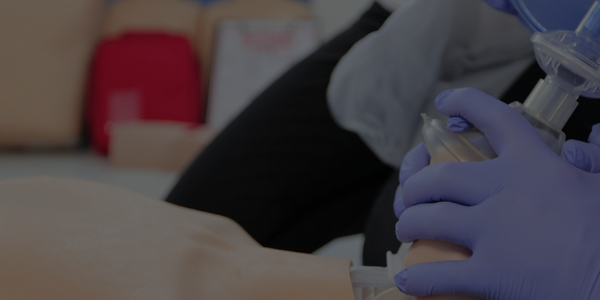As March arrives, we shift our focus to a critical aspect of first aid and safety awareness – Poisoning and Toxin Awareness. Whether you’re an educator, teacher, or NDIS worker, understanding how to respond to poison exposures and recognizing common toxins is essential. In this blog post, brought to you by AB First Aid Training, we’ll delve into the importance of Poisoning and Toxin Awareness, emphasising its significance in our unique environment.
Why Poisoning and Toxin Awareness Matters
Poisoning incidents can happen to anyone, and timely intervention can be life-saving. Here’s why Poisoning and Toxin Awareness matters:
Diverse Flora and Fauna
Australia is home to unique plant and animal species, some of which can be toxic if encountered or ingested.
Statistic
According to the NSW Poisons Information Centre, over 8,000 snake bites occur in Australia each year, with a small number of fatalities.
Household Chemicals
Many common household products contain potentially harmful chemicals that can pose risks, especially to childre
Statistic
The Australian Competition and Consumer Commission (ACCC) reports thousands of incidents involving household chemical product poisoning each year
Food Safety
Ensuring food safety is vital to prevent foodborne illnesses due to contamination or spoilage
Statistic
The Food Safety Information Council estimates that around 4.1 million cases of food poisoning occur in Australia annually
Poisoning and Toxin Awareness Basics:
Understanding poisoning and toxin awareness involves recognizing potential sources of harm, signs of poisoning, and appropriate first aid responses. Here are some key aspects:
Common Toxins:
Familiarise yourself with common toxins found in your region, such as poisonous plants, venomous creatures, and household chemicals.
Signs of Poisoning:
Be aware of the signs and symptoms of poisoning, which can vary depending on the toxin involved.
First Aid Response:
Learn how to provide initial first aid care in case of poisoning, including steps to take while waiting for professional medical assistance.
The Poison Information Hotline
In case of poisoning incidents, remember the invaluable resource of the Poison Information Hotline, accessible 24/7 at ☎️13 11 26.
Preventing Poisoning Incidents
While awareness is crucial, prevention is equally important. Consider the following prevention measures:
Safe Storage:
Store chemicals and potentially toxic substances out of reach and in their original containers.
Food Safety:
Follow proper food handling and storage guidelines to prevent food poisoning incidents.
Identify Hazardous Plants:
Be able to identify potentially toxic plants in your surroundings, especially if you have children or pets.
Treatment for Poisoning and Toxins
In the event of a suspected poisoning or toxin exposure, it’s essential to act promptly and seek medical assistance. Here are the steps to take:
Ensure Safety:
First, ensure your safety and the safety of others around you. If there’s an ongoing risk of exposure to the poison or toxin, move to a safe location.
Call for Help:
Dial emergency services immediately or instruct someone to do so. Provide them with all relevant information, including the type of poison or toxin involved and the victim’s condition.
Poison Information Hotline:
Call the Poison Information Hotline at [☎️13 11 26] for guidance on managing the situation. They can provide specific advice tailored to the situation.
Keep the Victim Calm:
If the victim is conscious and alert, try to keep them calm and reassure them. Encourage them not to panic, as stress can exacerbate symptoms.
Do Not Induce Vomiting:
In most cases, it is not recommended to induce vomiting unless advised to do so by a medical professional or the Poison Information Hotline. Inducing vomiting can sometimes worsen the situation.
First Aid Support:
f the victim is experiencing symptoms such as difficulty breathing, seizures, or loss of consciousness, follow the appropriate first aid procedures, such as CPR if needed. Ensure you have received proper training in these techniques.
Provide Information:
When seeking medical assistance, be prepared to provide information about the suspected poison or toxin, the amount or exposure duration, and any symptoms observed.
Collect Evidence:
If possible, collect any containers, labels, or remnants of the suspected poison or toxin, as this can help medical professionals identify the substance and provide appropriate treatment.
Remember, the treatment for poisoning and toxins can vary depending on the specific substance involved. It’s crucial to follow the guidance provided by medical professionals or the Poison Information Hotline for the best possible outcome. In any poisoning or toxin exposure incident, seeking immediate medical assistance is the key to ensuring the victim receives appropriate care and support.
Conclusion
(Poisoning and Toxin Awareness)
In March, take the initiative to promote safety through Poisoning and Toxin Awareness. Being informed and prepared can significantly reduce the risk of poisoning incidents and improve response times when they do occur.
AB First Aid Training offers courses that cover Poisoning and Toxin Awareness, equipping you with the knowledge and confidence necessary to respond effectively to poison exposures. To learn more about our training options and how AB First Aid Training can support your safety efforts, visit our website at www.abfirstaid.com.au or contact us at 8364 8984.
By staying informed, utilising the Poison Information Hotline, and taking preventive measures, you can contribute to a safer environment for yourself, your family, and your community. Let’s make March a month of Poisoning and Toxin Awareness.
#SafetyAwareness #PoisoningPrevention #ToxinAwareness #EmergencyResponse #ABFirstAidTraining
Please note that regular First Aid and CPR Training is the best way to make sure that you’re prepare in the case of an emergency. Book a course with us
Find this article useful? Enjoy reading more of our blogs here!





